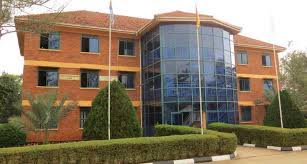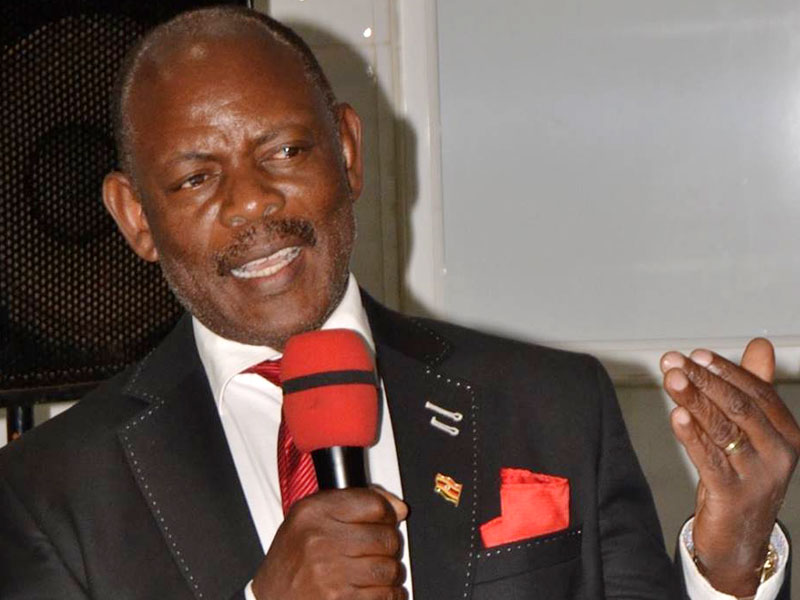The Minister of Education and Sports and Uganda’s First Lady, Janet K. Museveni (pictured) has highlighted several advantages that make Uganda’s Education System attractive. She made the remarks in her statement to mark Uganda’s 59th Independence Day Celebrations jointly organized by Uganda Missions abroad.
In Kenya, the event took place at Serena Hotel, Nairobi on Saturday October 9, 2021.
The event was organized under the theme: Securing Uganda’s Future Through Promotion of Tourism and Education for Economic Development.
Janet Museveni said Government of Uganda recognizes the importance of education and training, and has over the years allocated a reasonable share of the National Budget to the sector to ensure appropriate supply of human resources for the country’s development. “Compared to other countries in the East African region, Uganda’s education system has been appreciated and recognized as having the most rigorous academic and scholastic standards in the region, making it a learning destination for students in many other countries in the region and beyond,” the Minister said.
She added: “Due to liberalization of the education sector along with Uganda’s rapid economic growth in the past two decades, there has been a significant increase in the number of schools, both public and private, at all levels of education. Consequently, Uganda has seen an influx of students seeking to study in the country, and we welcome them to all our institutions. Data available shows that foreign students have enrolled at all levels of education in Uganda. The largest number of these come from Kenya, Tanzania, Rwanda, Burundi, Sudan, and the Democratic Republic of Congo.”
According to Janet Museveni, below are the several advantages that make Uganda’s Education System attractive;
a)It is worth noting that Uganda’s education system is based on the British system which is similar to many countries abroad e.g. Britain, Malaysia, etc.
This makes the education system compatible with that of many countries, which is a strength to take advantage of.
b)The medium of instruction at all institutions is English which is also the official language of Uganda. In addition, other language courses are offered at the institutions including German, French, Kiswahili, Chinese, and others.
c)There is a conducive climate for study throughout the year, and a fairly stable political environment that strongly supports the education system
d)Uganda’s education system is the cheapest in the region and yet with best regional quality.
e)The infrastructure is fairly well developed in most education institutions, thus providing a good learning environment.
f)A national system of quality assurance and assessment is done at nearly all levels, and this enables standardization and confidence in the qualifications that are internationally recognized.
g)Science, Technology, and Innovations are emphasized, and significant discoveries and break-through research is being realized at Universities and other tertiary level institutions.
h)Research and innovations at Makerere University has enabled the institution maintain its glory as the oldest and one of the best in Africa and still attracts students internationally.
i)The National Council for Higher Education has minimum benchmarks for courses that enables the quality of programmes to be standardized and therefore enabling the credit transfer system.
j)The quality assurance framework for universities and the licensing process for higher education institutions gives credibility to the recognized institutions. All students in accredited institutions are assured of a quality education and recognized certification.
k)The legal framework in place has not only established the NCHE but also given institutional and academic freedom to institutions, and therefore investors are protected by law but also have the freedom to operate and manage their investments.
l)Admission to the schools is non-discriminatory and all children are catered for equally. Foreign students enjoy Uganda’s hospitality and have no problem living and studying in Uganda.
m)Internet connectivity is average but adequate to provide the necessary connections to research hubs and necessary academic information. Students can use internet connectivity to do research and communicate worldwide.
The Minister added that there are several investment opportunities at all levels of education for both local and international schools:
(a)At Pre-primary level:
Education is currently offered by the private sector providers and Government only provides the regulatory framework, training, registration of the teachers and caregivers, and support supervision. The private sector has taken a leading role which is appreciated by Government and this is a very virgin area for investment in the sector.
(b)At Primary level:
Uganda embraced Universal Primary Education in 1997 and since then the primary school children have had opportunity to study free of charge. This policy initially placed a burden on the existing facilities but over the years government has improved this situation greatly. Today most schools have fair infrastructure but many are also still needy. The country’s population is growing and more children are yet to enroll.
Despite the free government schooling, there are still many private primary schools in the country and there is demand for more places. Many parents still prefer to take their children to private schools for several reasons including the belief in better quality, better infrastructure, more motivated teachers, better pupil-teacher ratio, and so on. Investment opportunities are therefore still available in this sub-sector.
(c)At Secondary level:
Government implemented the USE policy from 2007 which also placed a huge burden on the available infrastructure, and to-date the demand for access is much more than available capacity. There are very many private schools that have been established and still cannot even absorb all those who qualify for secondary education. Some of the schools are over-enrolled, and many others are in dire need of quality improvement. Investment opportunities exist in this area, and systems are in place to support investment.
There is an efficient system in place for licensing and registration of schools, teachers are readily available, there is a national curriculum, and schools are monitored and provided with support supervision to ensure compliance to the set standards.
(d) For Technical, and Vocational Education and Training:
The sub-sector prepares technicians for the world of work, and Government of Uganda has given priority attention to skilling Ugandans in order to produce the skilled workforce needed for development. There are several public and private institutions across the country offering skills training at both certificate and diploma levels. Enrolments are rising and there are enormous opportunities for investment in this area. The demand for skills training is not exhausted mainly because of the size of investment required, and many skills training areas in demand have remained unattended to and so there is need for a strong public-private partnership.
(e)For University Education:
There has been notable growth in the number of universities from one university in 1988 to 51 in 2021. 40 of these are private, while 11 are public.
Enrolments have increased year by year and available evidence clearly shows that there is a capacity gap that needs to be addressed. Again, investment opportunities are available, not only for increased access but also for improved quality, efficiency and effectiveness in the system.
(f)Another area of investment that has drawn so much attention in the recent past is ICT, especially promoting ICT enabled education and training at all levels. This requires huge investment and is currently a virgin area for investment.
She urged Uganda’s Missions abroad to work with education sector to attract investments in education in various ways, including promoting the country’s education system and opportunities, establishing partnerships with other institutions abroad, promoting exchange programs with related institutions, establishing opportunities for research collaborations and seeking scholarships for foreign students to study in Uganda and vice versa.







But vocational education is the way to go.